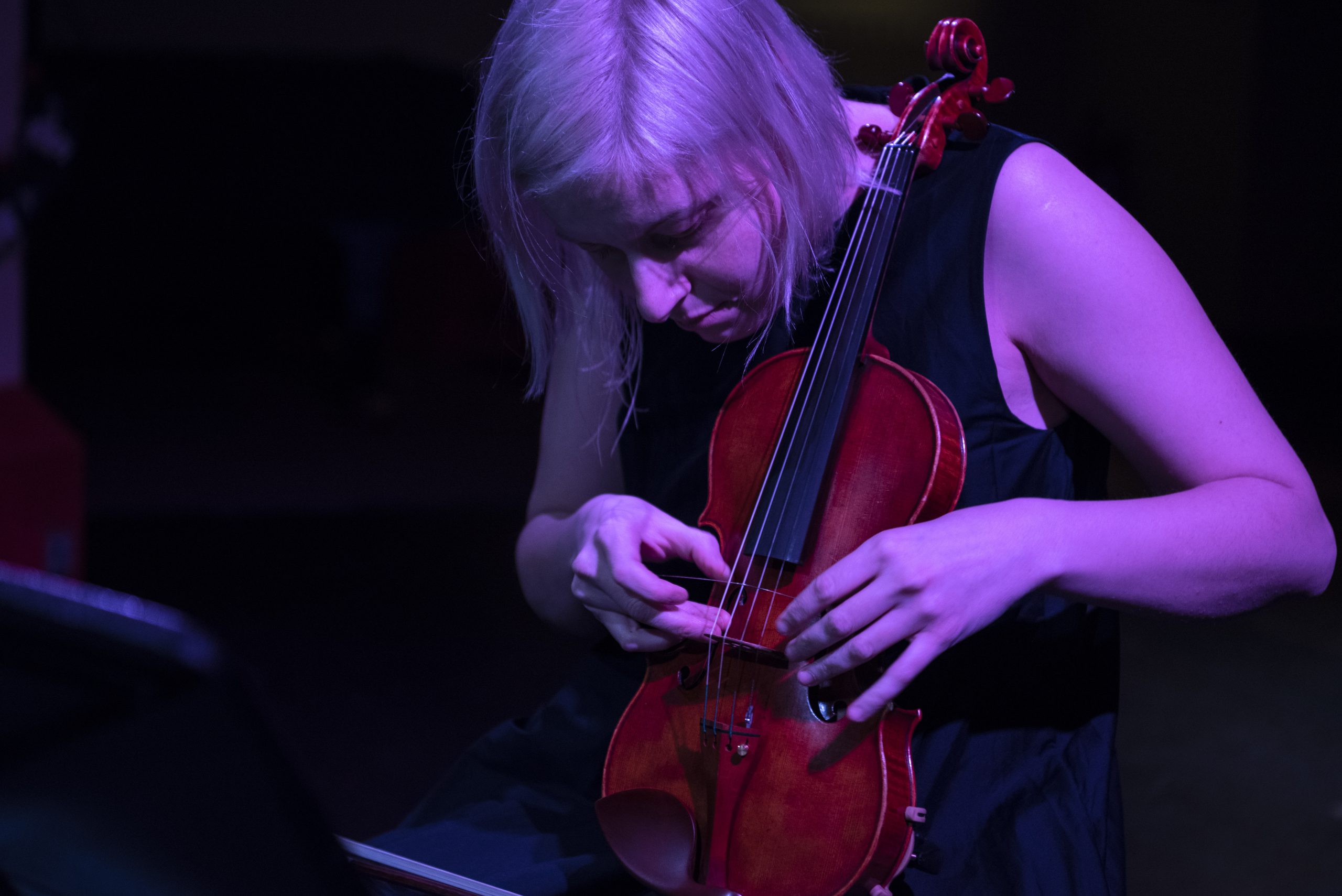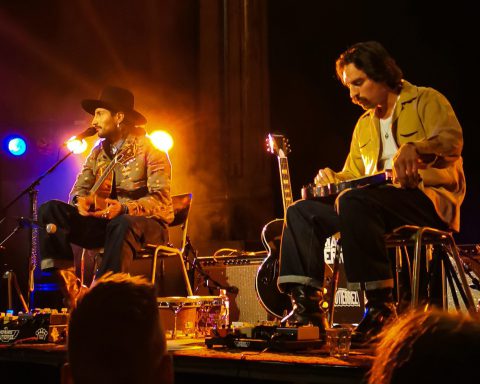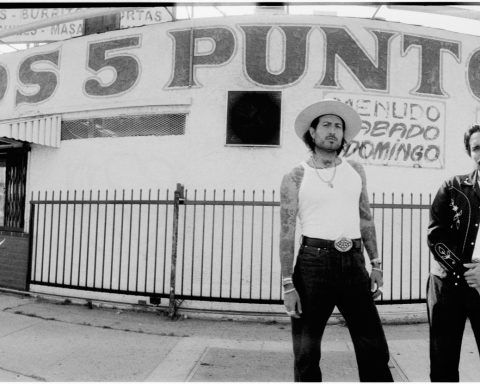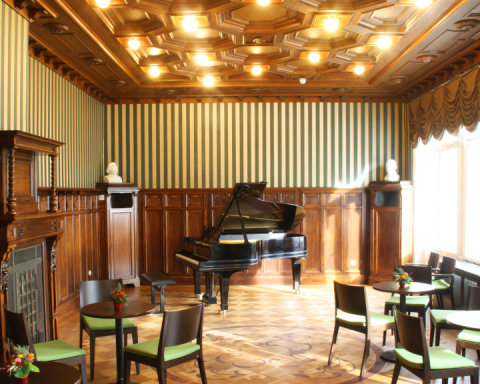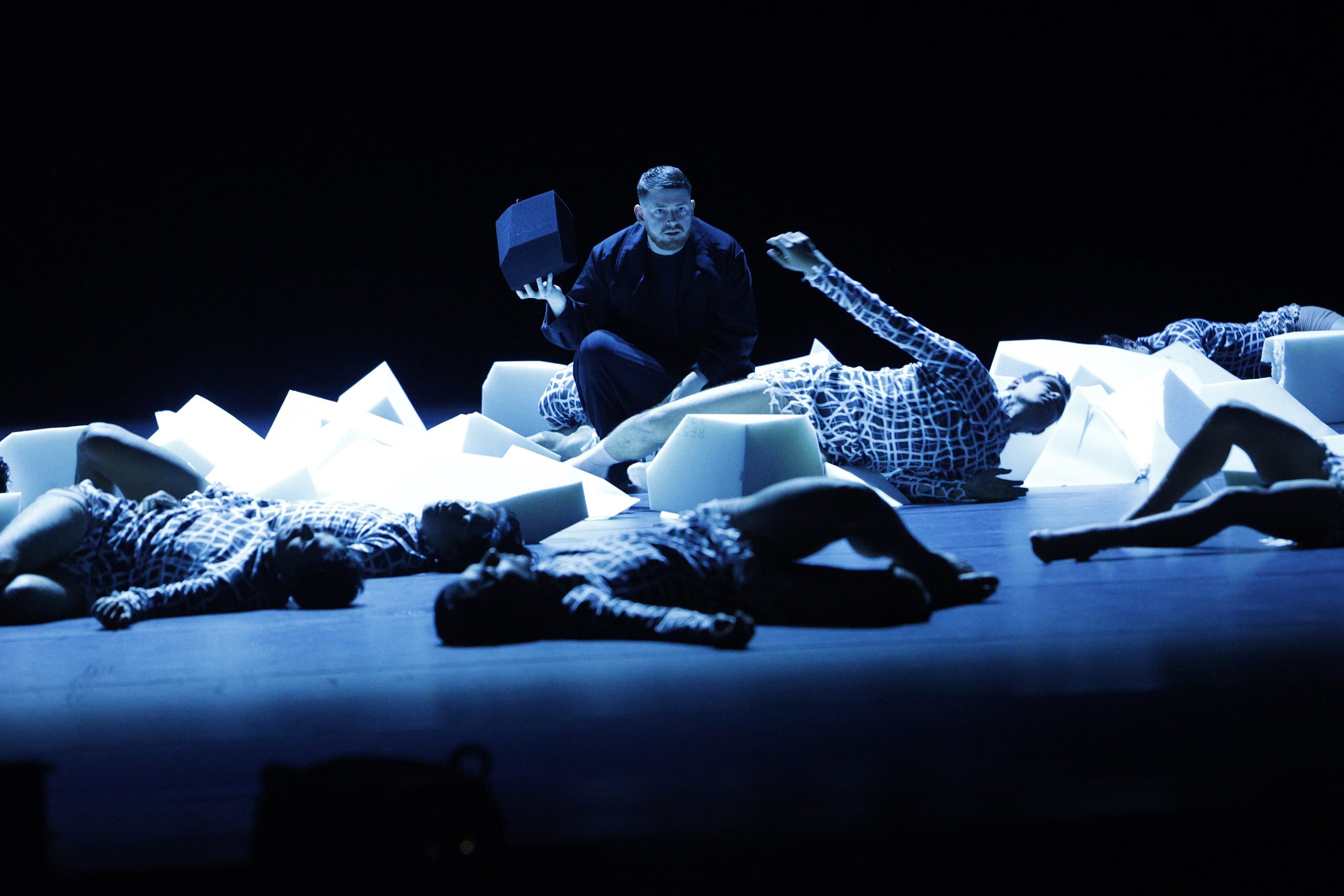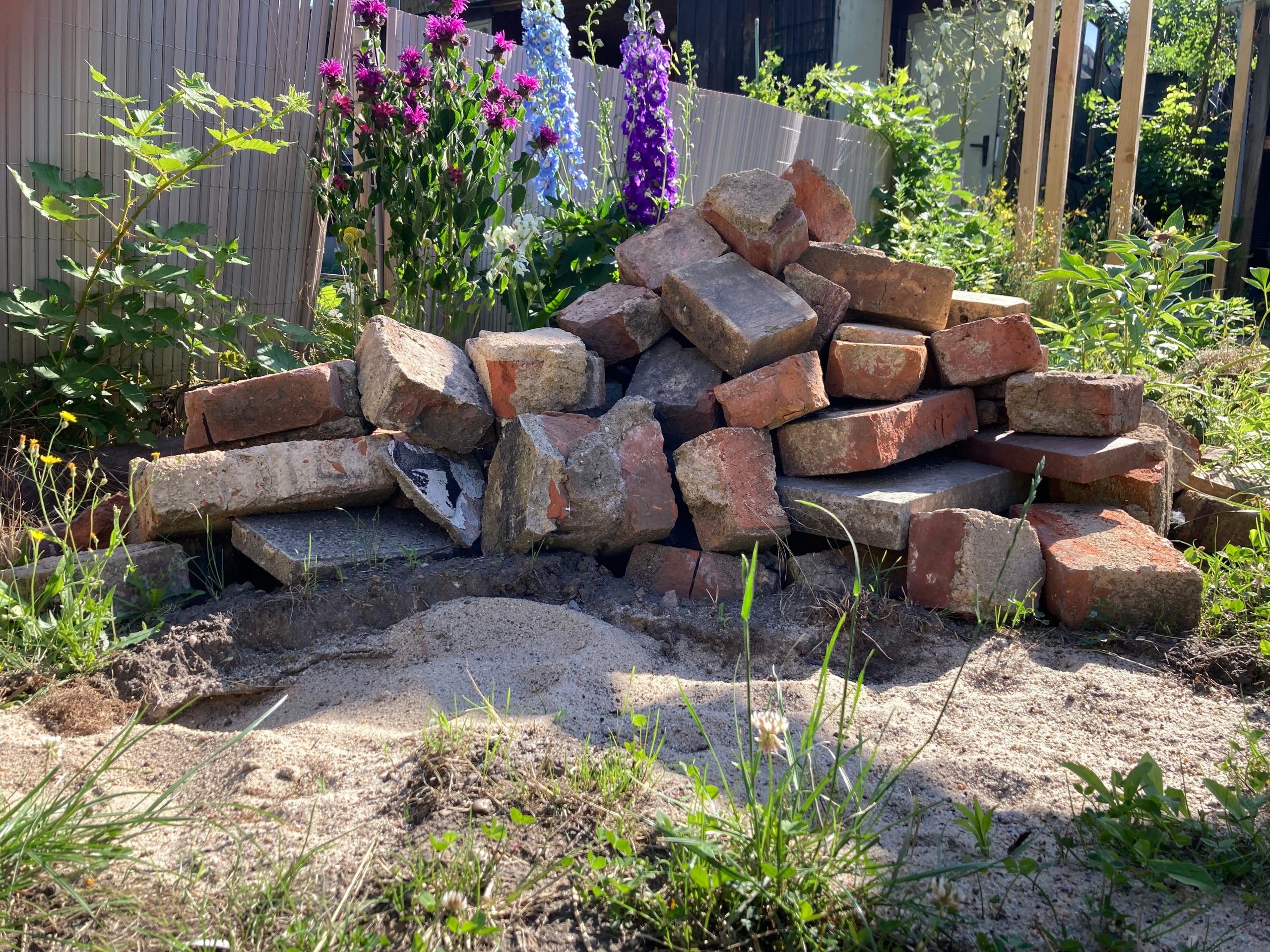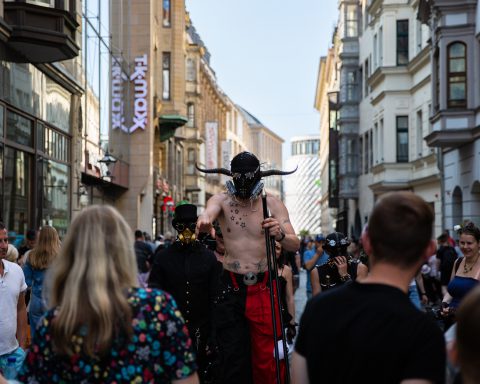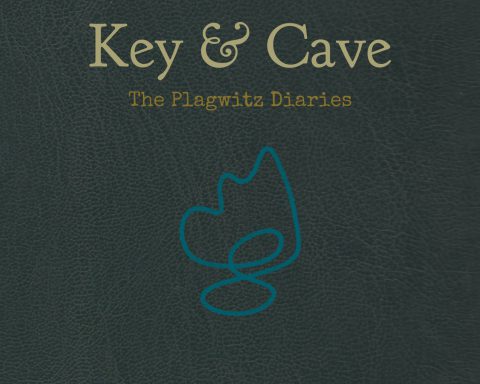“Support the art of our time,” said the call to action on the programme of new music that was performed at Contemporary Insights Salon in Leipzig in April.
Dejana Sekulić (from Serbia and Belgium) had come from Brussels to perform six contemporary pieces by six different composers, including her own, on the violin. Glancing around during the performance it was clear that the often fragmented, at times aggressive, rhythmic, percussive, other-worldly and sometimes challenging sounds produced completely engaged and moved the audience.
Contemporary music in Leipzig is, however, underfunded compared to classical music, which means there are limited opportunities to experience what I did on that night in April. The Contemporary Insights Salon was rejected for funding by the City of Leipzig, and instead received funding from other organizations.
In 2023, contemporary music projects received less than 20 percent of the funding provided by the City of Leipzig for classical music projects. The lack of support means that those who study contemporary music here often move away. The city’s Mayor of Culture, Dr. Skadi Jennicke, has not made herself available to meet with those involved to discuss these issues, according to several local contemporary musicians that LeipGlo interviewed for this article. And there is a clear conflict of interest, they say, as the majority of the contemporary music fund for 2023 went to a member of the advisory panel’s project.
Sekulić, who describes herself as a violinist, sound artist and sound and silence explorer, explained that in order to perform the compositions, her violin had to be adapted or “prepared” in some way. Depending on each composer’s instructions, this could mean tuning the instrument differently or putting blu-tack on the strings. Some of the pieces also included audio and video components.
It was an especially unique experience to watch the performers work and to interact with them afterwards. Particularly appealing were the four parts of Julie Michael’s “Junk Drawer” (2022) which were interspersed throughout the programme. We can probably all relate to having such a drawer, but who has ever put the contents to such a creative purpose? A thimble, guitar pick, clothes peg and crochet needle were applied to the violin in different ways: the peg was clipped across the strings and the crochet needle was woven between the strings while the thimble and guitar pick were used in a plucking pizzicato way. The sound effects were varied and fascinating as the physical properties of the instruments were pushed to the limit.
The audience was mesmerised.
At the end of the evening audience members gathered to discuss aspects of the performance with Sekulić, who was completely open to the many curious queries. Some wanted to physically touch the roll of paper that she had used as a bow in “Phenotype” (2011-12) by Polish-born Wojtek Blecharz, or inspect the laser-cut bow with a microphone attached that was used to explore “how the bow hears” in Alessandro Perini’s piece, “On that day my left ear became a frog” (2018).
Others asked technical questions about the motion-tracking of the right hand in the piece “BOW” (2020) by Johannes Kreidler or wondered what the scores looked like and how they were interpreted, for example in Sekulić’s own piece, “Pathways” (2022) about the migratory paths of birds and humans. On the latter point, Sekulić said notation is constantly in development and it can be challenging to figure out how the music should sound from looking at a score. Sometimes it’s a collaborative process with the composer and most often it’s a process of interpretation that takes time.
Local public funding for contemporary music in 2023 considerably reduced
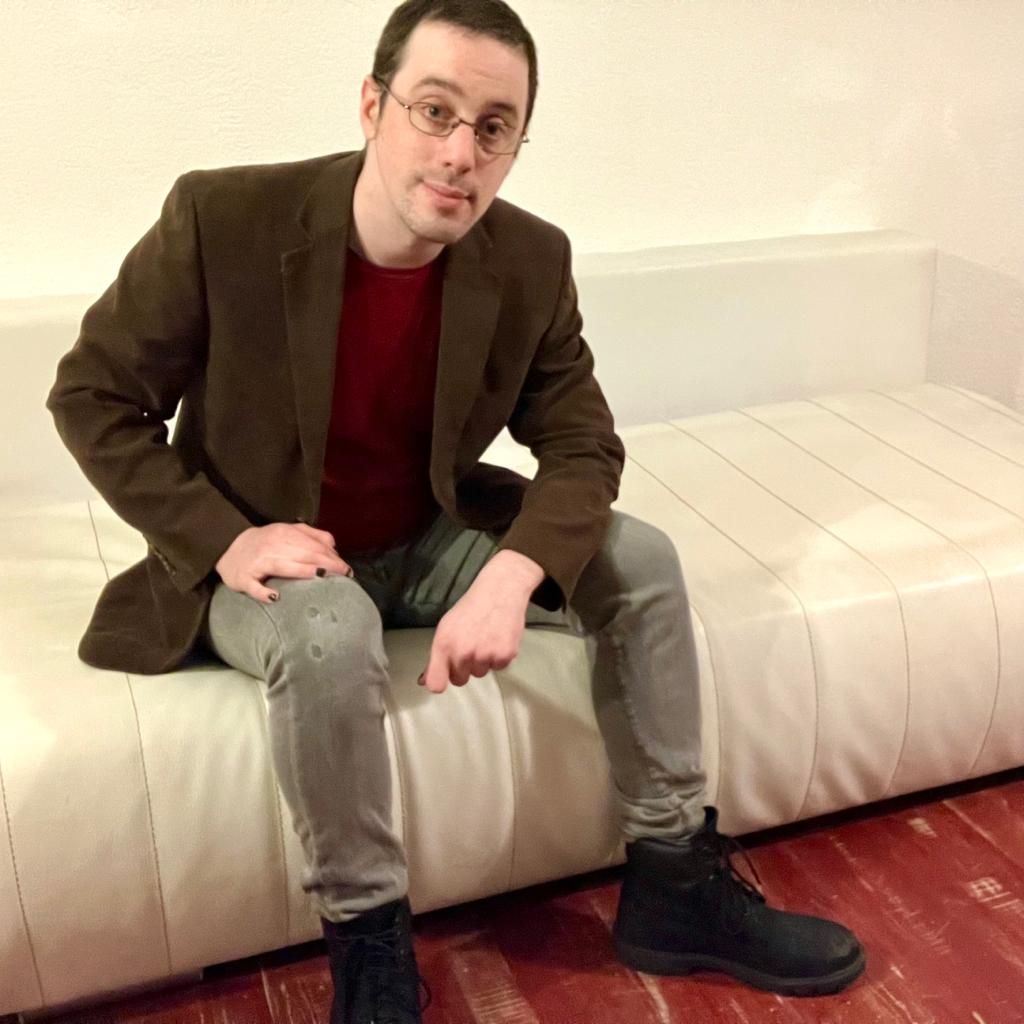
Very limited local public funding means such performances and opportunities for audiences to experience new music (“new” and “contemporary” are used interchangeably in this article) do not happen as frequently as Zachary M. Seely, Executive/Development Director of Contemporary Insights e.V., which hosted the performance, would like.
In 2023 the City of Leipzig’s total financial support for contemporary music was reduced by about three-quarters, to a total of €26,050 from €95,000 in 2022. The 2022 funding of €51,000 for contemporary music institutions was completely done away with, and that for contemporary music projects was reduced from €44,000 to €26,050.
Seely says the result of the funding reduction is that contemporary music practitioners are being left behind and their future in Leipzig is poor.
Seely is a composer from New York City. He came to Leipzig eight years ago to study for a PhD in composition with Professor Dr. Claus-Steffen Mahnkopf at Leipzig’s University for Music and Theatre “Felix Mendelssohn Bartholdy” (HMT). He tells me he considers it a privilege to have been able to study at the HMT. Seely brought with him the Contemporary Insights initiative, which began in 2014 as a concert series for contemporary music in NYC to unite audiences, composers and performers. In 2019 the initiative achieved nonprofit association status in Germany and now has more than 30 members, including composers and performers. Based in Leipzig, the Contemporary Insights Salon concert series features, “composers/performers of exceptional musicality and aims to contextualise some of the most intricate and demanding contemporary music being written today.”
It is also cool for Leipzig to create its own musical identity in the twenty-first century, Seely says, just as Bach, Mendelssohn, Schumann and others did in their day.
Sadly, the City of Leipzig’s lack of support for contemporary music means the spirit of new music is being left behind. “It is a closed community for classical music,” Seely concludes.
Like the performance I attended, Seely tells me the Contemporary Insights concert programmes welcome dialogue. Above all they are new, open to all generations and reflect society in that they can be edgy and challenging—“you don’t know what to expect.” Looking back, Bach also challenged the compositional limits of his time, for example with his “Well-tempered Clavier” of preludes and fugues in all 24 keys, major and minor.
Why the reduction in public funding?
Back to the present and future, those involved in new music in Leipzig today want to know why the 2023 public funding for contemporary music was reduced so significantly. When asked, Leipzig’s Cultural Department responded with, “Such variances are common, as the substance of the project determines the amount of support provided rather than the amount of funding available.” They also said, “Since there are no fixed budgets for the different cultural categories or genres in project funding, the amount of the funding can vary from year to year.”
Rather ironically, the City of Leipzig funds the education of composers at the HMT. Not surprisingly, Seely expects there’d be an interest in retaining composers and further investing in their future here in Leipzig. Professor Mahnkopf from the HMT simply says he does not know why the city’s funding for contemporary music was reduced so dramatically in 2023.
For another view on the question of funding, I approached Stefan Beyer, Director of the nonprofit association for contemporary literature and music, forma Leipzig e.V.
Since 2010, forma has initiated countless readings, performances, and premieres of works by renowned German and international artists. Beyer sees Leipzig as a great city of classical music. However, when it comes to contemporary music, Beyer says “the city’s administration lacks the sense, the awareness, and the necessary decisiveness. This can be seen in the Cultural Department’s reluctance to express itself and get involved productively or even to admit cultural-political deficits.”
Beyer says quite bluntly, “The point is the money that has been distributed so far is not enough. The fact that there are great people in the city is completely overlooked.” The implications for the city of Leipzig are considerable: “If the City (administration) does not finally do something and change things effectively, key players will gradually leave the city, and the location will also become increasingly unattractive for new students of contemporary music. He says this is shameful considering how big and important Leipzig was for the production and composition of new works in the past.
“When it came to world premieres, Leipzig was a magnet, a cosmopolitan city—today it’s a province.” Beyer is concerned that experts throughout Germany have long been aware of this and are closely following developments in Leipzig. He says, “The current situation is damaging the nationwide reputation of the music city of Leipzig.”
JiYoun Doo, director of TEMPUS KONNEX, would like to see a physical space in Leipzig for new music.
Founded in 2015, their website states, “TEMPUS KONNEX is a collaboration of professional artists from different fields, who have committed themselves to setting a new stage for avant-garde music.” Doo also has a music communications role with Leipzig + Kultur. This nonprofit association seeks to represent the interests of independent cultural initiatives, project groups, cultural institutions and freelance artists in the city of Leipzig.
Originally from South Korea, Doo has been in Leipzig since 2007, so she knows this place well and is at home here. However, as a composer, she says she feels rather alone because: “so many composers leave after their composition studies. Others are forced to do something completely different to survive.” This could mean, for example, teaching an instrument or working in another field. Doo recognises that creativity needs to be cultivated and receive support and attention to thrive. She says with the funding cut, what little local public support was available has now plummeted.
A positive, internationally active, well-networked person, Doo has worked hard over the past 10 years to create opportunities for new music to be experienced. Proving it can be done here, for a week in July 2022, ICE Week 2022, she brought contemporary music to Leipzig’s city center, at locations including the Alte Börse (Old Stock Exchange) and the Stadtgeschichtliches Museum’s Böttchergäßchen House. The series of concerts, workshops and roundtable discussions were well received, she says, her face lighting up.
There is no shortage of musicians and composers reaching out to Doo, but a gaping lack of support to make new music projects happen in Leipzig. Rather than being the “City of Music,” she concludes rather sadly that “City of Old Music” would be more appropriate for Leipzig in 2023.
By comparison, she mentions cities such as Cologne, Freiburg, Frankfurt, Darmstadt and Karlsruhe where contemporary music is publicly supported and thriving, and events and festivals regularly take place. Despite having doors shut in her face, Doo’s door is very much open, and she has ideas, projects and plans drawn up just waiting to be realised should people be willing to support them.
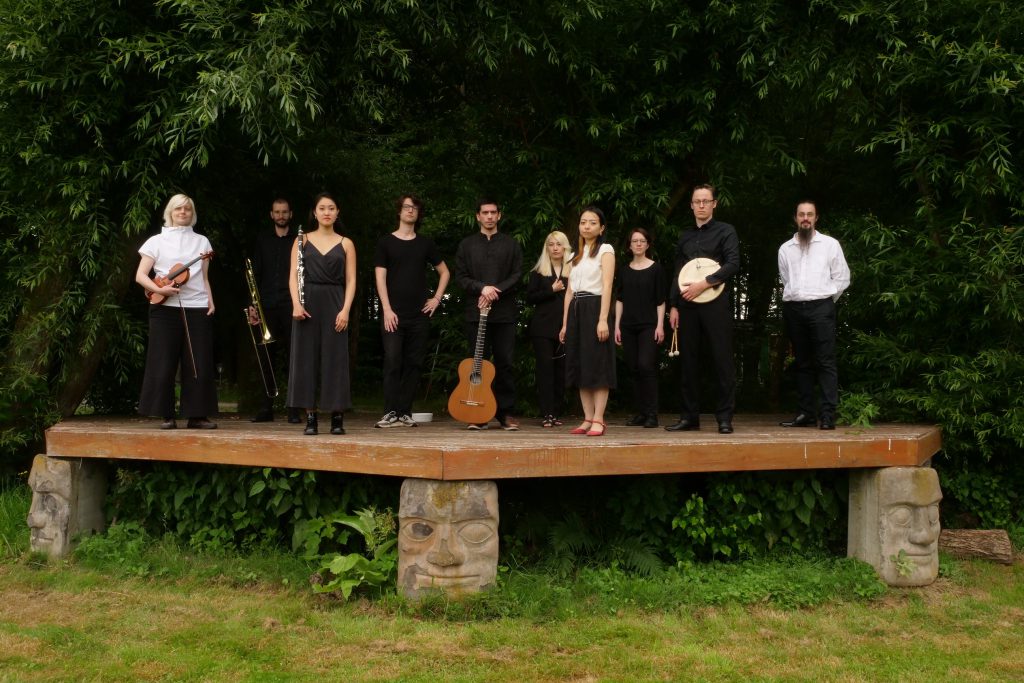
Who received the public funding in 2023?
It seems that not only is the reduction in public funding a concern, but also to whom the little money available in 2023 went. The funding arrangements provide that an advisory panel, or Beirat, assesses each new music project submitted according to certain criteria, which include aspects such as innovation. It is not uncommon for members of the advisory panel to be active in the contemporary music world themselves, and members of the panel can also submit their own projects for consideration.
That said, it becomes interesting when you learn that one advisory panel member was awarded funding of€16,450 for their own contemporary music project—about two-thirds of the total provided by the City in 2023 for contemporary music. While advisory panel members are excluded from advising on their own applications, perception is important. So too is the appropriate application of funding criteria in theory and in practice, and ultimately the distribution of funds. That said, there is always the opportunity to challenge the result of an application for funding.
Working with the City of Leipzig
Seely tells me those in the contemporary music world have become more connected in recent years, and that this is important for their individual and collective survival. A strong supportive community with various active groups is desirable, he says. As mentioned above, Leipzig + Kultur also has an important role to play in connecting independent individuals and groups, and Leipzig’s Cultural Department.
At the end of March, a meeting took place between these parties. Although asked to attend, the city’s Mayor of Culture, Dr. Skadi Jennicke was absent. The Cultural Department told LeipGlo: “Cultural funding is the responsibility of the cultural office and specifically the cultural funding department. There is ongoing coordination and an intensive exchange on these (and other) topics with the culture department and the deputies.”
The meeting itself was rather embarrassing, Seely said, pitched as a kind of team-building exercise with breakout groups. He and his colleagues felt they were talked down to and treated like kids, rather than the professionals they are. The pretence that all was okay was palpable, I heard. Bureaucratic, unhelpful responses like, “we’re aware of the situation” were provided to key issues such as composers who are educated in Leipzig moving to other cities to survive.
Leipzig’s Cultural Department said they take the increased need for discussion on the part of those involved in contemporary music regarding the current funding situation very seriously and have sought contact with the parties involved. Their contrasting take on the March meeting was, “the various discussions were seen as very positive by everyone and, in our opinion, represent an important step for the further development of contemporary music in Leipzig.”
How to support contemporary music in Leipzig
“Support for contemporary music is not just about money—there are so many possibilities!” Doo exclaims. Contemporary art knows no boundaries and cross-pollination and cooperation with other disciplines, such as the visual arts and even science, strengthens creativity. Not surprisingly, collaboration is on the tip of her and Seely’s tongues. For example, with sport, Seely unexpectedly suggests. Huge crowds gather regularly in Leipzig for football games, and providing contemporary music events on those occasions would enrich the Leipzig experience for many.
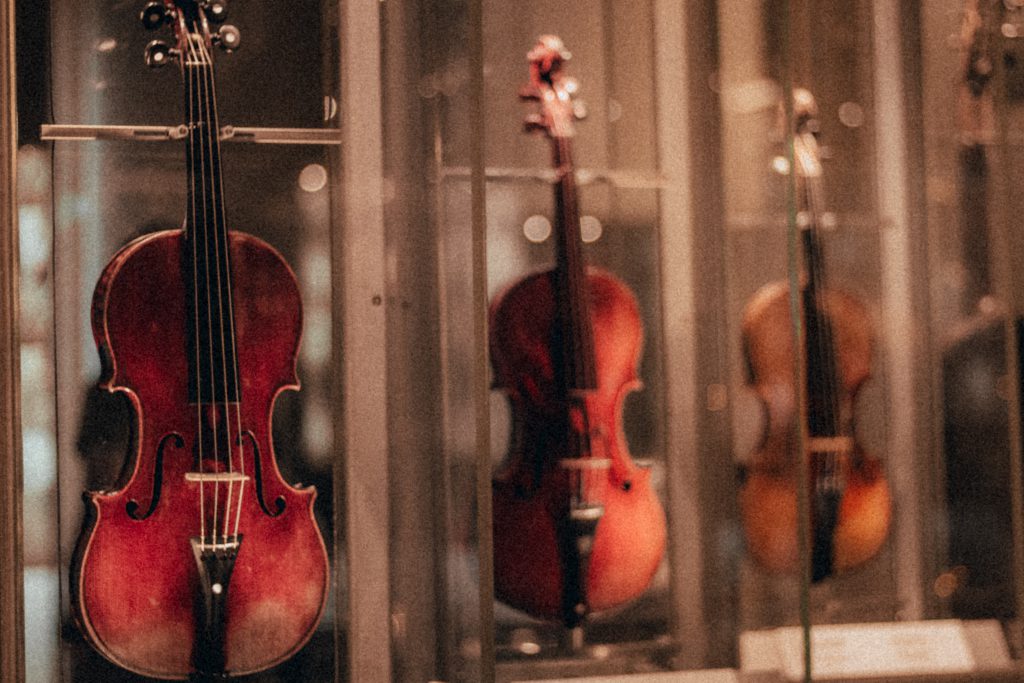
International collaboration is also needed to make Leipzig a destination for new music now and in the future, Doo is convinced. Key international professionals like herself and Seely are fine examples of practitioners drawing international composers and performers to the city. But support is needed to sustain multiple Leipzig-based ensembles, individuals and concert series that provide regular work opportunities.
Leipzig needs a central space for contemporary music with the associated costs covered, Seely says.
Future-focused and inspired by things contemporary in her birth country of South Korea, Doo has drawn up plans for such a space. She has Wilhelm-Leuschner-Platz in mind—one point of a musical triangle that includes Thomaskirche and Augustusplatz. Unfortunately, the latter’s Gewandhaus is just too expensive for contemporary music events, Seely says. He suggests making the venue available at a discounted rate would enable performances of contemporary music, attracting new audiences and the accompanying economic benefits visitors bring. It would also breathe new life into a cultural institution that Doo likens to a museum.
Along with space, Leipzig needs a contemporary music festival. In times when politics can separate, a festival would bring people together, connecting them with contemporary life and providing shared experiences. Seely says there is a huge opportunity to join up with the visual arts, the city’s gothic festival (Wave-Gotik-Treffen), the rich musical history here and to welcome immigrants through the international language of music. Unfortunately, that opportunity is currently being lost, and contemporary music practitioners are suffering and being marginalised.
Living in the here and now and contemplating the future
Like those in other disciplines, composers and performers of contemporary music live in the here and now, and importantly their work interprets the present and contemplates the future. Culture is a living thing, everything is new once, and it should go without saying that while honouring history, the creative outputs of today are highly relevant and to be valued. Perhaps not everyone can relate to music written hundreds of years ago?
Practically, contemporary music practitioners also need to be paid fairly so they can cover their costs and thrive in their profession. I can only recommend the exciting physical and sensory experience of attending a live contemporary music event, you can even talk to the composers—they’re alive just like you!
Rather than comparing the contemporary music situation in Leipzig to other places, Seely simply asks, “Why can’t Leipzig take the lead when it comes to contemporary music, as it once did?”
Experience contemporary music in Leipzig
- Calendar of performances at Contemporary Insights Salon, Zschochersche Str. 52, 04229 Leipzig
- TEMPUSKONNEX concerts

